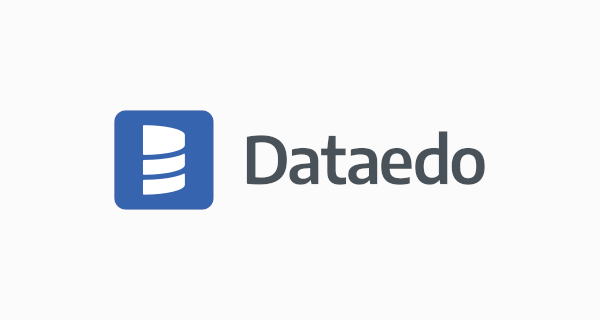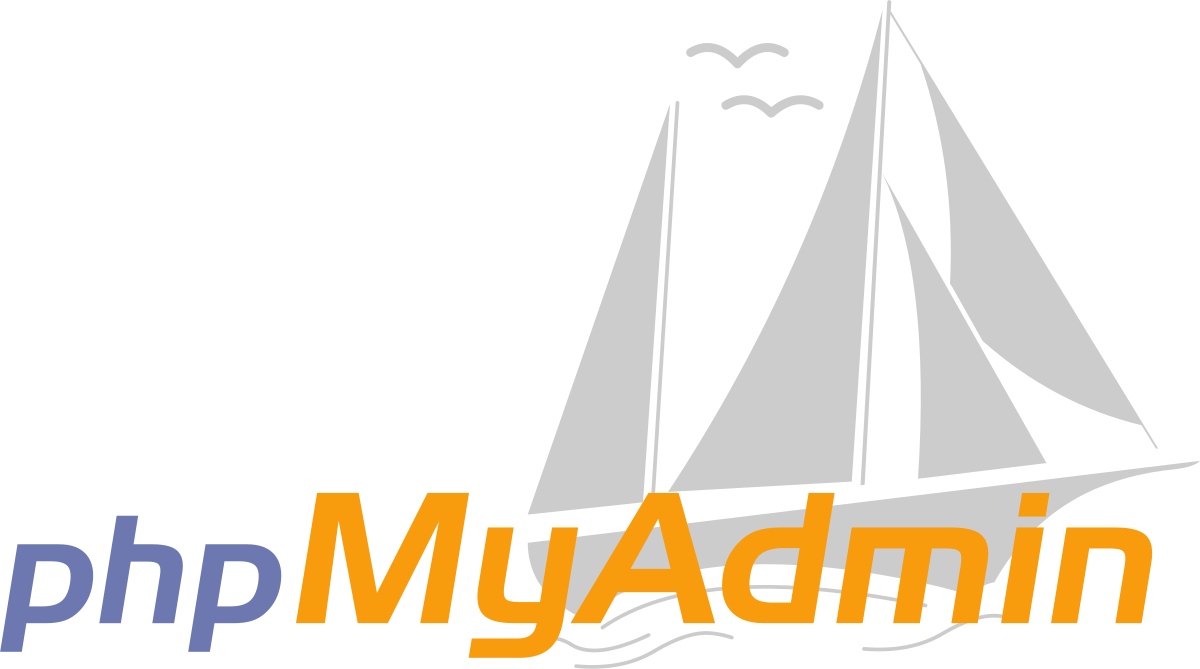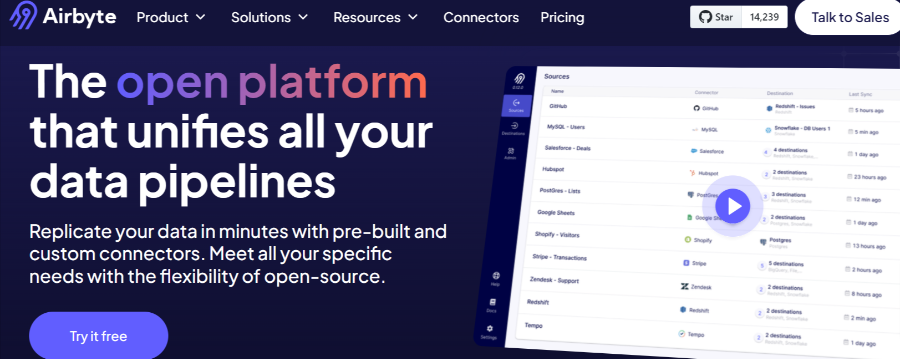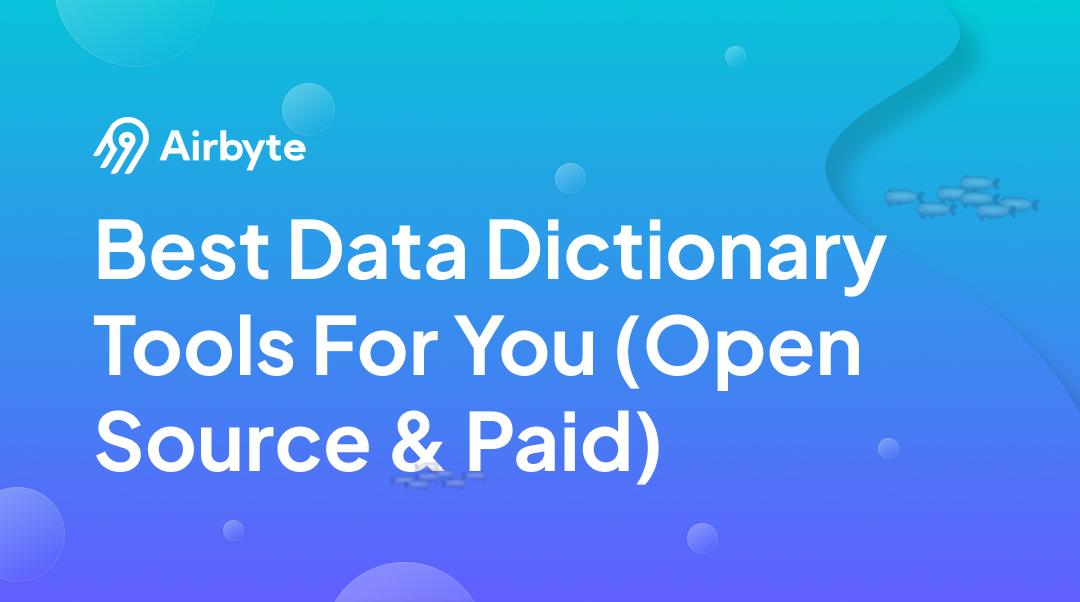11 Best Data Dictionary Tools For You (Open Source & Paid)
Summarize this article with:
✨ AI Generated Summary
Data dictionaries centralize metadata to ensure consistent data definitions, improve data quality, and enhance collaboration across organizations. Modern tools offer features like automated metadata collection, data lineage tracking, AI-powered search, and integration with business glossaries to support governance and compliance. Key benefits include faster onboarding, reduced redundancy, confident decision-making, and bridging technical-business gaps, with top tools ranging from Secoda and Dataedo to Collibra and Alation.
- Data dictionaries provide a common language for data understanding and governance.
- Advanced tools support automated updates, semantic relationships, and role-based access.
- Choosing the right tool depends on organizational needs, technical environment, and budget.
- Effective implementation requires automated metadata harvesting and collaborative documentation.
Most organizations use large volumes of data to make informed decisions. However, maintaining consistent data definitions and ensuring alignment across the organization can be challenging. This is where specialized tools such as data dictionaries can help.
Data dictionaries provide a centralized repository for documenting and organizing data definitions. They help promote data quality, accessibility, and consistency. Making data searchable enhances accessibility and collaboration within organizations, allowing teams to search and understand various data elements easily. This blog will explore the eleven best data dictionary tools (open-source and paid) that can enable you to streamline your organizational data.
What Is a Data Dictionary and Why Does It Matter?
A data dictionary is a comprehensive repository of metadata that provides detailed information about the data used within an organization. It serves as a central metadata repository, enabling users to understand the meaning and purpose of data elements, their relationships, and usage rules.
The primary purpose of a data dictionary is to provide a common language and understanding of data, ensuring that all stakeholders are on the same page. Modern data dictionary tools have evolved beyond static documentation to become active metadata management platforms that automatically sync with database changes, provide real-time validation, and integrate with business glossaries to bridge technical and business contexts.
By defining data elements, structures, and relationships, a data dictionary facilitates data discovery, analysis, and governance. This centralized approach helps organizations maintain consistency and accuracy in their data, making it easier to manage and utilize data assets effectively. Advanced tools now incorporate features like column-level lineage tracking, automated schema change detection, and role-based access controls to support enterprise-grade governance requirements.
What Are the Key Benefits of Using Data Dictionary Tools?
A data dictionary is a foundational tool for building trust in your data. Whether you're scaling a data team or just trying to make sense of a growing number of data assets, here's why investing in a data dictionary pays off:
- Improved Data Understanding: A centralized data dictionary ensures everyone speaks the same language. Defining fields and metrics reduces misinterpretation for non-technical stakeholders.
- Faster Onboarding: Team members can get up to speed quickly when definitions are already documented. Instead of constantly asking engineers for explanations, they can self-serve information.
- Better Governance and Compliance: Data dictionaries support consistent practices by clearly stating ownership, lineage, and data classifications. This is crucial for audits and privacy regulations.
- Reduced Redundancy: Without a data dictionary, organizations often create multiple versions of the same metric. Documenting definitions standardizes usage and prevents conflicting reports.
- Confident Decision-Making: When teams trust data and understand what it represents, they make faster, more confident decisions. A data dictionary eliminates ambiguity, basing insights on clearly defined knowledge.
- Stronger Collaboration: Data dictionaries bridge the gap between technical and business teams. They empower business users to explore data independently while helping data teams manage requests efficiently. Integration with platforms like Slack allows teams to resolve questions without switching contexts.
What Are Semantic Data Dictionaries and Knowledge Graph Methodologies?
Modern enterprises are adopting semantic web technologies to transform traditional data dictionaries into intelligent knowledge systems. Semantic data dictionaries leverage Resource Description Framework, Web Ontology Language, and SPARQL query languages to create machine-interpretable relationships between data elements.
Understanding Semantic Web Standards in Data Management
RDF models data as triples using subject-predicate-object relationships, enabling complex entity-attribute connections that traditional dictionaries cannot capture. OWL extends RDF with logical constraints and hierarchical reasoning, allowing automated classification of data elements according to standardized taxonomies.
When combined with SPARQL, these technologies enable sophisticated semantic queries like "identify all financial metrics used in regulatory reporting" through graph traversal rather than keyword matching.
Knowledge Graph Integration for Enterprise Metadata
Knowledge graphs model data ecosystems as interconnected entities, capturing both technical metadata like schemas and lineage alongside business context, including glossary terms and regulatory requirements.
This unified structure addresses limitations of rigid relational databases by supporting multi-domain metadata integration, expressive data lineage visualization, and enhanced explainability for machine learning models.
Which Are the Best Data Dictionary Tools Available Today?
1. Secoda

Founded in 2021, Secoda is a powerful data management platform that streamlines data discovery and governance. The platform emphasizes self-service analytics and automated metadata management, making it particularly valuable for growing organizations that need to scale their data operations efficiently.
Secoda excels in providing contextual search capabilities across diverse data sources, enabling teams to discover relevant datasets through natural language queries. The platform's automated documentation features reduce manual maintenance overhead while ensuring metadata remains current and accurate.
Key features include:
- Automated Data Profiling: Automatically profiles and assesses customer data quality with statistical insights and anomaly detection.
- Data Lineage: Visualizes the relationships and dependencies between data assets with column-level tracking across complex transformation pipelines.
- AI-Powered Search: Contextual search across the data stack with natural language processing and intelligent recommendations for related datasets.
2. Dataedo

Dataedo is a popular database documentation tool that supports many databases and emphasizes visual data modeling capabilities. The platform provides comprehensive entity-relationship diagram generation and business glossary integration, making it particularly effective for organizations with complex relational database structures.
The tool stands out for its reverse-engineering capabilities, automatically generating documentation from existing database schemas while allowing manual enrichment with business context. Dataedo supports both on-premises and cloud deployments, offering flexibility for diverse enterprise environments.
Key features include:
- Data Profiling: Comprehensive analysis of data quality metrics, distribution patterns, and statistical summaries across database tables.
- Metadata Connectors: Extensive database support, including SQL Server, Oracle, MySQL, PostgreSQL, and cloud data warehouses, with automated schema discovery.
- ER Diagrams: Interactive visual representations of database relationships with customizable layouts and export capabilities for documentation and presentations.
3. erwin Data Modeler

erwin Data Modeler is a comprehensive data modeling tool that excels in enterprise data architecture and governance. The platform provides advanced capabilities for logical and physical data modeling, supporting complex enterprise architectures with multiple database platforms and integration requirements.
The tool's strength lies in its ability to maintain consistency between conceptual business models and physical database implementations. erwin's collaborative features enable multiple teams to work on shared models while maintaining version control and governance standards.
Key features include:
- Visualization of Complex Data Structures: Advanced diagramming capabilities with support for hierarchical models, dimensional modeling, and enterprise architecture frameworks.
- Forward and Reverse Engineering: Bidirectional synchronization between logical models and physical database schemas with automated change impact analysis.
- Support for Multiple Model Types: Comprehensive support for conceptual, logical, and physical models with transformation capabilities between different modeling paradigms.
4. Collibra

Collibra is a data governance and management platform that provides enterprise-grade capabilities for large organizations with complex compliance requirements. The platform emphasizes policy-driven governance and automated data stewardship workflows, making it particularly suitable for highly regulated industries.
Collibra's workflow engine enables sophisticated approval processes for metadata changes and data access requests. The platform integrates with numerous enterprise tools and provides comprehensive audit trails for compliance documentation.
Key features include:
- Data Catalog: Comprehensive asset inventory with automated discovery capabilities, business glossary integration, and advanced search functionalities across heterogeneous data sources.
- Business Glossary: Centralized terminology management with hierarchical taxonomies, synonym handling, and cross-reference capabilities linking business terms to technical assets.
- Data Lineage: End-to-end tracking of data movement and transformation with impact analysis capabilities for understanding downstream effects of changes.
5. Alation

Alation is a data dictionary tool that provides a central repository with emphasis on collaborative data discovery and machine learning-powered insights. The platform leverages behavioral analysis to understand how data is actually used within organizations, providing recommendations and insights beyond traditional metadata management.
Alation's strength lies in its ability to combine automated metadata harvesting with crowdsourced knowledge from data users. The platform's machine learning algorithms analyze usage patterns to identify popular datasets and suggest relevant connections.
Key features include:
- Metadata Capture: Automated harvesting from diverse data sources, including databases, cloud platforms, and business intelligence tools with intelligent relationship detection and usage analytics.
- Data Lineage: Comprehensive tracking of data flow through complex transformation pipelines with visual representations and impact analysis for understanding dependencies and potential risks.
6. Talend Data Catalog

Talend Data Catalog is a cataloging solution that integrates seamlessly with Talend's broader data integration and quality management ecosystem. The platform provides comprehensive data discovery capabilities with automated profiling and classification features.
The tool excels in environments where data integration and cataloging requirements are closely aligned, offering unified governance across data movement and documentation processes. Talend's machine learning capabilities automatically detect and classify sensitive data for compliance purposes.
Key features include:
- Automated Data Discovery: Intelligent scanning and profiling of data sources with pattern recognition for data types, relationships, and quality issues across structured and semi-structured data.
- Centralized Data Catalog: Unified repository for technical and business metadata with collaborative annotation capabilities and integration with Talend's data preparation and integration tools.
- Data Governance: Comprehensive policy management with automated enforcement, data stewardship workflows, and compliance reporting for regulatory requirements.
7. ER/Studio

ER/Studio is an advanced data modeling tool that provides enterprise-grade capabilities for data architecture and governance. The platform supports complex modeling scenarios, including dimensional modeling for data warehouses and conceptual modeling for business analysis.
ER/Studio's collaborative features enable distributed teams to work on shared data models while maintaining consistency and version control. The platform provides comprehensive repository management for storing and organizing data models, metadata, and documentation.
Key features include:
- Comprehensive Data Modelling: Support for conceptual, logical, and physical modeling with advanced features for dimensional modeling, master data management, and enterprise architecture documentation.
- Advanced Metadata Management: Centralized repository with version control, impact analysis, and automated synchronization between models and database implementations.
- Data Governance: Policy-driven governance workflows with approval processes, change tracking, and compliance reporting capabilities for enterprise data management initiatives.
8. Vertabelo

Vertabelo is a popular web-based tool designed to facilitate visual data modeling with emphasis on collaboration and cloud-based accessibility. The platform provides intuitive database design capabilities without requiring software installation, making it accessible to distributed teams.
Vertabelo's strength lies in its simplicity and collaborative features, enabling multiple users to work simultaneously on data models with real-time synchronization. The platform supports multiple database platforms and provides SQL generation capabilities for implementation.
Key features include:
- Data Dictionary: integrated documentation capabilities with comprehensive metadata management, custom properties, and automated generation of database documentation from visual models.
- Database Diagramming: Intuitive visual modeling interface with support for multiple database platforms, collaborative editing capabilities, and real-time synchronization for distributed teams.
9. phpMyAdmin

phpMyAdmin is a free and open-source tool for MySQL and MariaDB administration that includes basic data dictionary capabilities. While primarily designed as a database administration interface, phpMyAdmin provides features for documenting database structures and generating data dictionaries.
The tool is particularly valuable for organizations using MySQL or MariaDB databases that need cost-effective documentation solutions. phpMyAdmin's widespread adoption and active community support make it a reliable choice for basic data dictionary requirements.
Key features include:
- Multi-Server Support: Management of multiple MySQL and MariaDB instances through a single interface with connection management and server-specific configuration options.
- Building and Exporting Data Dictionary: Automated generation of database documentation with table structures, relationships, and custom comments, exportable in various formats, including PDF and HTML.
10. Database Note Taker

Database Note Taker is a popular open-source data dictionary tool that focuses on simplicity and ease of use for database documentation. The platform provides straightforward capabilities for documenting database structures and maintaining metadata without the complexity of enterprise-grade solutions.
The tool's lightweight architecture makes it suitable for smaller organizations or projects that need basic data dictionary functionality without extensive governance requirements. Database Note Taker supports multiple database platforms and provides flexible documentation options.
Key features include:
- Data Visualization: Simple diagramming capabilities for database relationships with customizable layouts and export options for documentation and communication purposes.
- Advanced Search and Filter Functionality: Efficient navigation through large database structures with text-based search and filtering capabilities for tables, columns, and metadata.
- Data Documentation: Comprehensive annotation capabilities for tables, columns, and relationships with support for custom properties and collaborative editing features.
11. SolarWinds Database Mapper

SolarWinds Database Mapper is a powerful tool that directly contributes to data dictionary creation and management through comprehensive database analysis and documentation capabilities. The platform provides detailed insights into database structures, relationships, and dependencies across complex enterprise environments.
The tool excels in environments with multiple database platforms and complex integration requirements, providing unified visibility across diverse data architectures. SolarWinds' enterprise monitoring capabilities complement data dictionary functionality with performance and health insights.
Key features include:
- Data Lineage Analysis: Comprehensive tracking of data flow through complex database environments with visual representations of dependencies and transformation processes.
- Automated Documentation: Intelligent generation of database documentation with relationship mapping, constraint analysis, and metadata extraction from multiple database platforms.
- Broad Connectivity: Extensive support for different database technologies, including legacy systems, cloud platforms, and modern data warehouses with unified management capabilities.
How Can You Create an Effective Data Dictionary?
Creating a data dictionary involves several steps, starting with identifying data elements. This consists of listing the different data elements used within the organization, including data sources, structures, and relationships. Collecting information about each data element, such as its purpose, domain value, and any other definitions needed, is essential.
Establishing Governance Framework and Ownership
Begin by defining clear governance structures with designated data stewards responsible for maintaining accuracy and consistency. Establish standardized naming conventions and classification schemes that align with your organization's business terminology. Create approval workflows that ensure changes to critical definitions undergo appropriate review processes.
Implementing Automated Metadata Collection
Leverage tools that can automatically harvest metadata from your existing systems, including databases, data warehouses, and business intelligence platforms. Configure automated profiling to generate statistical summaries and quality metrics that provide context about data usage patterns and reliability.
Building Collaborative Documentation Processes
Encourage cross-functional participation by involving both technical and business teams in defining and maintaining data definitions. Implement crowdsourcing mechanisms that allow subject matter experts to contribute domain knowledge while maintaining quality control through governance processes.
Ensuring Continuous Maintenance and Updates
Establish monitoring processes that detect schema changes and trigger metadata updates automatically. Create regular review cycles for validating definitions against actual data usage and business requirements. Implement version control mechanisms that track changes over time and maintain historical context.
How Should You Choose the Right Data Dictionary Tool for Your Company?
Choosing the correct data dictionary is crucial and requires careful consideration of your organization's specific needs, technical environment, and governance requirements.
Consider Your Organizational Needs
Identify required features by assessing your current data landscape, user types, and compliance requirements. Evaluate whether you need basic documentation capabilities or advanced features like automated lineage tracking, AI-powered search, and integration with existing tools. Consider the technical expertise of your team and whether you require self-service capabilities for business users.
Compare Tool Capabilities and Architecture
Evaluate flexibility, scalability, ease of use, and integration capabilities across different platforms. Assess whether tools support your existing technology stack and can grow with your organization's evolving data needs. Consider deployment options, including cloud-based, on-premises, or hybrid architectures that align with your security and governance requirements.
Compare Costs and Return on Investment
Factor in your budget while considering both upfront costs and ongoing operational expenses. Evaluate pricing models, including per-user licensing, data volume-based pricing, or flat-rate enterprise agreements. Consider the total cost of ownershi,p including implementation, training, and maintenance resources required for different solutions.
Test the Tools Through Pilot Programs
Most tools offer free trials or proof-of-concept opportunities that allow you to evaluate functionality with your actual data. Conduct pilot programs with representative users from different roles to assess usability and adoption potential. Test integration capabilities with your existing tools and workflows to ensure smooth implementation.
Why Consider Airbyte?
Airbyte is a modern data movement platform that helps you collect data from various sources and load it into a centralized destination. While not a native data dictionary tool, Airbyte facilitates establishing the foundation for streamlined data dictionary creation through effective data integration and management.

Airbyte's open-source foundation provides enterprise-grade capabilities without vendor lock-in, making it particularly valuable for organizations building modern data infrastructure. The platform's automated metadata capture capabilities and schema management features create clean, well-documented data pipelines that serve as the foundation for comprehensive data dictionaries.
Key features include:
- Pre-built Connectors: Over 600+ pre-built connectors that automatically capture and maintain metadata from diverse sources, reducing manual documentation overhead.
- Streamlined GenAI Workflows: Load unstructured data into vector stores with automated metadata extraction and classification capabilities.
- Support for RAG-Specific Transformations: Intelligent data processing that maintains semantic relationships and context essential for modern AI applications and knowledge management systems.
Conclusion
Data dictionary tools are essential for organizations seeking to establish consistent data definitions and improve data governance. Choosing the right tool depends on your specific organizational needs, technical environment, and long-term data strategy.
Effective implementation requires both automated metadata collection and collaborative documentation processes involving technical and business stakeholders. Whether you select an enterprise platform or open-source solution, a well-maintained data dictionary builds trust in your data assets and enables more confident decision-making.
Frequently Asked Questions
What are the six components of a data dictionary?
A data dictionary has six components: business definitions, constraints, data types, default values, length, and transformation regulations. Modern dictionaries also include additional elements like data lineage, quality metrics, and governance policies.
What are the different types of data dictionaries?
The two main types of data dictionaries are active dictionaries, which are automatically updated by the DBMS, and passive dictionaries, which require manual updates. Contemporary tools often combine both approaches with intelligent automation and human oversight.
How does a data dictionary differ from a data catalog?
A data dictionary provides detailed metadata about data elements like definitions, types, and usage, while a data catalog offers a broader inventory of data assets, often with search and discovery features. Many modern tools combine both functionalities for comprehensive data management.
Can non-technical teams use data dictionaries?
Yes. Many modern data dictionary tools have user-friendly interfaces, making it easy for business users, analysts, and other non-technical stakeholders to understand and work with data definitions. Self-service capabilities and natural language search further enhance accessibility.
What's the role of a data dictionary in data governance?
Data dictionaries play a key role in governance by standardizing definitions, assigning data ownership, and supporting compliance by documenting sensitive data and access policies. They serve as the foundation for automated governance workflows and audit trails.
Do data dictionary tools integrate with BI or analytics platforms?
Most enterprise-level tools integrate with BI tools like Tableau, Power BI, and Looker to provide context directly within dashboards and reports. This integration enables self-service analytics while maintaining governance standards.
How often should a data dictionary be updated?
Ideally, your data dictionary should be updated continuously or in real time through automated metadata ingestion. Regular updates should be part of your data governance cycle to reflect schema changes and evolving business definitions. Modern tools provide automated monitoring and alerting for maintenance efficiency.

.webp)
